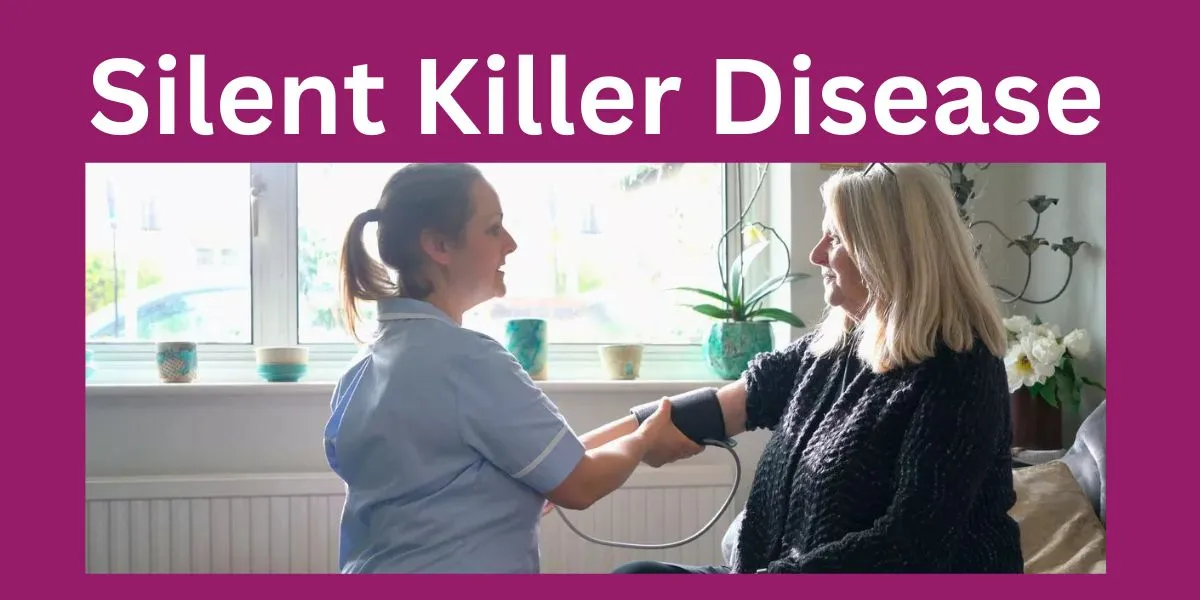Ever heard of the term “silent killer”? It’s not a dramatic movie title but a stark reality. A silent killer disease is a condition that sneaks up on you without any obvious symptoms. By the time you notice something’s wrong, it might already be too late.
Why Are They Called Silent Killers?
These diseases earn their ominous nickname because they don’t show warning signs in the early stages. They lurk in your body, causing damage without making a peep. Sounds scary, right? But knowledge is power, and understanding these conditions can help you stay ahead of the game.
Common Silent Killer Diseases
Let’s break down some of the most notorious silent killers that everyone should be aware of.
1. Hypertension (High Blood Pressure)
The Pressure You Don’t Feel
High blood pressure is often called the “silent killer” because it rarely has symptoms. It can quietly damage your arteries, leading to serious problems like heart attacks and strokes.
How Can You Detect It?
Regular blood pressure checks are the only way to know if you’re at risk. So, next time you visit your doctor, don’t skip this step!
2. Diabetes
Sweet But Deadly
Diabetes can quietly wreak havoc on your health. You might feel fine, but elevated blood sugar levels are slowly damaging your organs.
Spotting It Early
Simple blood tests can reveal if you’re heading toward diabetes. Keep an eye out for signs like excessive thirst or frequent urination.
3. Heart Disease
The Heartbreak of No Symptoms
Heart disease can build up silently over years. Plaque accumulates in your arteries, and you may not notice until a heart attack strikes.
Keeping Your Heart in Check
Monitoring cholesterol levels, staying active, and eating heart-healthy foods can reduce your risk.
4. Cancer
The Stealthy Invader
Certain types of cancer, like pancreatic or ovarian cancer, don’t show symptoms until they’re advanced. Early detection is tricky but crucial.
Early Detection Saves Lives
Screenings like mammograms, colonoscopies, and regular check-ups are key to catching cancer before it progresses.
5. Chronic Kidney Disease (CKD)
The Silent Harm to Your Kidneys
Your kidneys work overtime to filter waste from your blood. CKD can reduce this function without causing noticeable symptoms until it’s severe.
Tests to the Rescue
Routine urine and blood tests can detect kidney issues early.
Why Are Silent Killers So Dangerous?
The Lack of Symptoms
When you feel fine, it’s easy to assume everything’s okay. But silent killers don’t give you that luxury. By the time you realize something’s wrong, the damage may already be done.
Delayed Diagnosis
Without symptoms, these diseases often go undiagnosed until they reach a critical stage. This can make treatment harder and less effective.
Complications and Fatalities
The silent nature of these diseases means they often lead to severe complications, including organ failure, heart attacks, strokes, and even death.
Preventing Silent Killer Diseases
Prevention is always better than cure, especially when dealing with silent killers. Here’s how you can take charge of your health.
1. Regular Check-ups
Your Health’s Report Card
Routine check-ups are your first line of defense. Regular visits to your doctor can catch issues early, even when you feel perfectly fine.
2. Healthy Lifestyle Choices
Eat Smart, Live Longer
A balanced diet, rich in fruits, vegetables, whole grains, and lean proteins, can help ward off many silent killers.
Move It or Lose It
Regular exercise isn’t just for fitness fanatics. It helps keep your heart, weight, and overall health in check.
3. Monitor Your Health
Know Your Numbers
Keep an eye on your blood pressure, cholesterol, and blood sugar levels. These numbers can reveal a lot about your health.
4. Avoid Smoking and Limit Alcohol
Say No to Nicotine
Smoking is a major risk factor for many silent killer diseases, including heart disease and cancer.
Drink in Moderation
While a little alcohol might be okay, excessive drinking can lead to serious health issues.
The Role of Screenings
Early Detection Can Save Lives
Screenings like mammograms, colonoscopies, and blood tests can catch diseases before they become life-threatening. Don’t skip them!
Specific Screenings for High-Risk Groups
If you have a family history of certain diseases, talk to your doctor about the right screenings for you.
Coping with a Diagnosis
Emotional Impact
Getting diagnosed with a silent killer can be overwhelming. It’s normal to feel scared or anxious.
Building a Support System
Lean on family, friends, or support groups to help you navigate through the journey.
Treatment and Management
Work closely with your healthcare team to create a treatment plan that works for you. This might include medication, lifestyle changes, or other therapies.
The Importance of Awareness
Knowledge Is Power
The more you know about silent killers, the better equipped you are to protect yourself and your loved ones.
Spread the Word
Share this information with others. You never know whose life you might save with a simple conversation.
Conclusion
Silent killer diseases might be sneaky, but they’re not invincible. By staying informed, getting regular check-ups, and making healthy lifestyle choices, you can outsmart these silent threats. Don’t wait for symptoms to appear—take charge of your health today.
FAQs
1. What are the most common silent killer diseases?
The most common silent killer diseases include hypertension, diabetes, heart disease, certain cancers, and chronic kidney disease.
2. How can I detect a silent killer disease early?
Regular check-ups, screenings, and monitoring key health indicators like blood pressure, cholesterol, and blood sugar levels are essential for early detection.
3. Why don’t silent killer diseases show symptoms?
These diseases progress slowly and quietly, causing internal damage over time without triggering noticeable symptoms until they reach an advanced stage.
4. Can lifestyle changes prevent silent killer diseases?
Yes, adopting a healthy lifestyle, including a balanced diet, regular exercise, and avoiding smoking and excessive alcohol, can significantly reduce your risk.
5. What should I do if I’m diagnosed with a silent killer disease?
Follow your doctor’s advice, stick to your treatment plan, and make necessary lifestyle changes. Building a support system can also help you cope with the emotional impact of the diagnosis.










